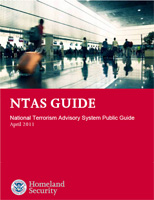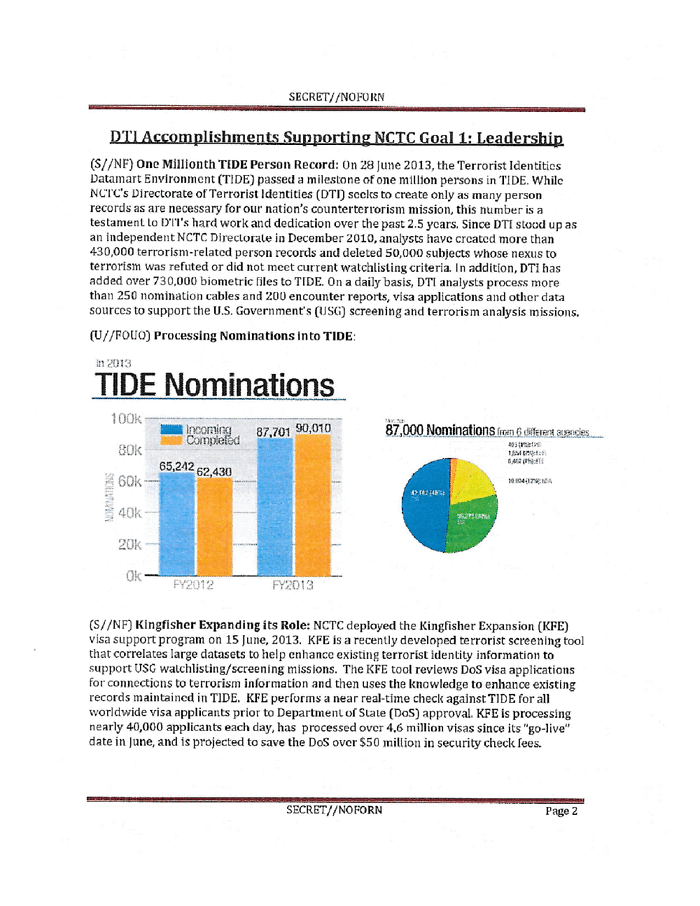The Wilson-Fish (WF) program is an alternative to traditional state administered refugee resettlement programs for providing assistance (cash and medical) and social services to refugees.
 Minneapolis
Minneapolis
 Vermont
Vermont
 Twin Falls, Idaho
Twin Falls, Idaho
The full government program description is here, from the Health and Human Services website which manages the Refugee Resettlement Program.
The purposes of the WF program are to:
- Increase refugee prospects for early employment and self-sufficiency
- Promote coordination among voluntary resettlement agencies and service providers
- Ensure that refugee assistance programs exist in every state where refugees are resettled
http://app.na.readspeaker.com/cgi-bin/rsent?customerid=7596&lang=en_us&readid=main&url=http%3A%2F%2Fwww.acf.hhs.gov%2Fprograms%2Forr%2Fprograms%2Fwilson-fish
I. INTRODUCTION
II. ELIGIBLITY
III. PROGRAM DESCRIPTION
IV. PROGRAM SERVICES
A. Refugee Cash Assistance
B. Refugee Medical Assistance/Refugee Medical Screening
C. Intensive Case Management
D. Employment/Employability Services
E. English Language Training
F. Translation and Interpretation Services
G. Refugee Social Services – Key Requirements
V. PROGRAM ADMINISTRATION
A. Statewide Coordination
B. RCA/RMA Administration
VI. PROCEDURES AND DEFINITIONS
A. Procurement of Services
B. Sanctioning and Fair Hearing Process
C. Definition of Terms
D. Procedure for a WF Program to Revert to a State Administered RCA or PPP Model
VII. REPORTING
VIII. Application
A. Substantial Involvement Under the Cooperative Agreement
B. Contents of the WF Application
I. INTRODUCTION
These guidelines are provided to grantees under the Wilson/Fish (WF) alternative program to assist them in their delivery of services and assistance to eligible populations. The purpose of the WF program is to establish an alternative to the traditional state administered refugee assistance program through the provision of integrated assistance (cash and medical) and services (employment, case-management, English as a Second Language (ESL) and other social services) to refugees in order to increase early employment and self-sufficiency prospects. In addition, the WF program enables refugee assistance programs to exist in every State where refugees are resettled.
The statutory authority for the WF program was granted in October, 1984, when Congress amended the Immigration and Nationality Act (INA) to provide authority for the Secretary of Health and Human Services to implement alternative projects for refugees. This provision, known as the Wilson/Fish Amendment, Pub.L. 98-473, 8 U.S.C. 1522(e)(7), provided:
“(7)(A) The Secretary shall develop and implement alternative projects for refugees who have been in the United States less than thirty-six months, under which refugees are provided interim support, medical services,1 support services, and case management, as needed, in a manner that encourages self-sufficiency, reduces welfare dependency, and fosters greater coordination among the resettlement agencies and service providers…
(B) Refugees covered under such alternative projects shall be precluded from receiving cash or medical assistance under any other paragraph of this subsection or under title XIX or part A of Title IV of the Social Security Act.
(C) “…”
(D) To the extent that the use of such funds is consistent with the purposes of such provisions, funds appropriated under section 414(a) of this Act, part A of Title IV of the Social Security Act, or Title XIX of such Act, may be used for the purpose of implementing and evaluating alternative projects under this paragraph.”
The WF Program is also referenced in the Office of Refugee Resettlement (ORR) regulations under the heading Alternative RCA Programs at 45 C.F.R. § 400.69:
“A state that determines that a public/private RCA program or publicly-administered program modeled after its TANF program is not the best approach for the State, may choose instead to establish an alternative approach under the Wilson/Fish program, authorized by INA section 412(e)(7).”
The ORR regulations at 45 C.F.R. §400.301 also provide authority to the ORR Director to select a replacement to respond to the needs of the state’s refugee population if a state withdraws from the refugee program:”…when a State withdraws from all or part of the refugee program, the Director may authorize a replacement designee or designees to administer the provision of assistance and services, as appropriate, to refugees in that State” (see page 14 – “Statewide Coordination”).
Neither the statute nor regulations mandate a competitive review process for determining a WF grantee. However, the statute does require as follows:
No grant or contract may be awarded under this section unless an appropriate proposal and application (including a description of the agency’s ability to perform the services specified in the proposal) are submitted to, and approved by, the appropriate administering official. Grants and contracts under this section shall be made to those agencies which the appropriate administering official determines can best perform the services 8 U.S.C. § 1522(a)(4)(A).
ORR with the Administration for Children and Families (ACF) concurrence has concluded a competitive review process is not cost effective, not in the best interest of the government, and not a practical fit for the WF program. ORR also, in accordance with the law cited above, will require that appropriate proposals and applications are submitted and that a determination is made that the grantees are the ones that can “best perform” the services. Therefore funding under this program is open only to those agencies that currently administer a WF program. The WF program has the regulatory authority as cited above to expand sites in the future as necessary if a state withdraws from the refugee program or if a state proposes to switch its current RCA model to the WF model.
WF grantees which include States, voluntary resettlement agencies (local and national), and a private non-profit agency that oversees a local voluntary resettlement agency administer 12 state-wide WF programs in the following States: Alabama, Alaska, Colorado, Idaho, Kentucky, Louisiana, Massachusetts, Nevada, North Dakota, South Dakota, Tennessee and Vermont, plus one county-wide program in San Diego County, California. The WF programs in these locations are currently administered by the following agencies:
Alabama: USCCB – Catholic Social Services
Alaska: USCCB – Catholic Social Services
Colorado: Colorado Department of Human Services
Idaho: Janus Inc. (formerly Mountain States Group), Idaho Office for Refugees
Kentucky: USCCB – Catholic Charities of Louisville, Kentucky Office for Refugees
Louisiana: USCCB – Catholic Charities Diocese of Baton Rouge, Louisiana Office for Refugees
Massachusetts: Office for Refugees and Immigrants
Nevada: USCCB – Catholic Charities of Southern Nevada
North Dakota: LIRS – Lutheran Social Services of North Dakota
San Diego County, CA: USCCB – Catholic Charities Diocese of San Diego
South Dakota: LIRS – Lutheran Social Services of South Dakota
Tennessee: USCCB – Catholic Charities of Tennessee, Tennessee Office for Refugees
Vermont: USCRI – Vermont Refugee Resettlement Program
II. ELIGIBILITY
ORR Eligible Client Population
To be eligible for WF funded programs and services, grantees must ensure refugees2 meet all requirements of 45 C.F.R. 400.43, “Requirements for documentation of refugee status”. Eligibility for refugee program services and assistance also includes: Asylees3, Cuban Haitian Entrants4; Certain Amerasians5 from Vietnam; Victims of Severe Forms of Trafficking6; Special Immigrant Visa Holders7.
All eligible individuals will be referred to as “refugees” or “clients” in these guidelines, unless the context indicates otherwise. For more details on documentary proof of the above statuses and all other ORR eligible populations, including statutory and regulatory authorities, visit the ORR website.
III. PROGRAM DESCRIPTION
Under the WF program guidelines, the grantee will provide interim financial assistance, medical assistance (if applicable), employment services, case management and other social services to refugees in a manner that encourages self-sufficiency, and fosters greater coordination among voluntary agencies and other community-based service providers. An integrated system of assistance and services is an essential characteristic of a WF program. Services and assistance under this program are intended to help refugees attain self-sufficiency within the period of support defined by 45 CFR 400.211.8 This period is currently eight months from date of arrival in the U.S. (for refugees and SIVs); the date of adjustment of status if applying for Special Immigrant Status within the U.S (SIVs); the date of final grant of asylum (for asylees); the date a Cuban/Haitian becomes an entrant9; the date of certification or eligibility letter for Victims of Severe Forms of Trafficking.
WF programs provide assistance and services to refugees for the purpose of enhancing refugee self-sufficiency. Some examples include: (1) where assistance and services for refugees receiving RCA and those receiving Temporary Assistance for Needy Families (TANF) could be provided in a better coordinated, effective, and efficient manner; (2) where the payment rate for RCA and TANF is well below the ORR payment rates listed in the ORR regulations at 45 C.F.R. section 400.60; (3) where TANF-eligible refugees may not have access to timely, culturally and linguistically compatible services in the provision of employment and training programs; (4) where existing options for delivery of services and assistance to refugees do not present the most effective resettlement in that location, and where resettlement could be made more effective through the implementation of an alternative project; (5) where the continuity of services from the time of arrival until the attainment of self-sufficiency needs to be strengthened; or (6) where it is in the best interest of refugees to receive assistance and services outside the traditional TANF system.
WF programs have the flexibility to design programs tailored to the refugees’ needs, assets, and environment of the resettlement community.
There are seven main elements of WF programs that allow them to be distinguished from the traditional10 state -administered refugee resettlement programs:
a. They may serve TANF eligible clients in addition to RCA clients.
b. The provision of cash assistance, case management and employment services are integrated and administered generally under a single agency employing a “one stop shop “ model that is culturally and linguistically equipped to work with refugees.
c. The cash assistance element may be administered and/or delivered by the state or a private entity.
d. Monthly RCA payment levels may exceed state TANF payment levels (up to the PPP levels outlined under 45 C.F.R. §400.60).
e. WF programs utilize innovative strategies for the provision of cash assistance, through incentives, bonuses and income disregards which are tied directly to the achievement of employment goals outlined in the client self-sufficiency plan.
f. Refugee Medical Assistance (RMA) may be administered by a private entity.
g. WF programs provide intensive case management to refugees who are determined to have special needs.
Funding for the WF program is made available under the Transitional Assistance and Medical Services (TAMS) and Social Services line items. Under TAMS, WF grantees receive WF-Cash and Medical Assistance (WF-CMA) discretionary funds which are awarded through cooperative agreements to cover RCA, RMA (if privately administered), intensive case management, statewide coordination and RCA/RMA administration costs. WF-CMA discretionary grants are awarded based on a budget of estimated costs for providing up to eight months of RCA and RMA (if applicable) to eligible refugees and up to one year of intensive case management, as well as for the identifiable and reasonable administrative costs associated with providing RCA and RMA and statewide coordination. WF-CMA is a cost reimbursement grant. Any unobligated balances will be used as an offset to the following year’s award for this grant.

 The
The 

